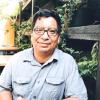History of Science, Technology and Medicine in Latin America
Please set your timezone at https://www.chstm.org/user
Consortium Respectful Behavior Policy
Participants at Consortium activities will treat each other with respect and consideration to create a collegial, inclusive, and professional environment that is free from any form of discrimination, harassment, or retaliation.
Participants will avoid any inappropriate actions or statements based on individual characteristics such as age, race, religion, ethnicity, sexual orientation, gender identity, gender expression, marital status, nationality, political affiliation, ability status, educational background, or any other characteristic protected by law. Disruptive or harassing behavior of any kind will not be tolerated. Harassment includes but is not limited to inappropriate or intimidating behavior and language, unwelcome jokes or comments, unwanted touching or attention, offensive images, photography without permission, and stalking.
Participants may send reports or concerns about violations of this policy to conduct@chstm.org.
Upcoming Meetings
There are no currently scheduled upcoming events.
Past Meetings
-
May 4, 2023
Cartographic Latin America
Presenters:
Julie Gibbings, The University of Edinburgh
Cold War Cartographies in Latin America
This presentation examines the history of geographic knowledges and technologies during the Latin America Cold War (1946-1991). After World War II, when the US government sought to prevent the spread of communism in Latin America, its agencies recognised the need for detailed knowledge of local conditions. Accurate maps were crucial. Beginning in 1946, the US Army Map Service operated a free geographical surveying, cartographical drawing, and map reproduction school at Fort Clayton in the Panama Canal Zone. Known as the Inter-America Geodetic Survey (IAGS), the school trained thousands of military and civilian personnel from across Latin America.
Trained through the IAGS, Latin American geographers used new mapping technologies to support economic development and US-supported counter-insurgencies against leftist groups. Latin American guerrillas, as well as people displaced by war, also generated new cartographic knowledge as they sought to navigate familiar and unfamiliar territories and to build political futures beyond the view of the state. Maps, guarded closely by the military and sought after by guerrillas, defined strategic battlefields. At the same time, guerrillas and displaced peoples navigated space through Indigenous and local knowledges of landscapes that were laden with social meanings, historical memories, and embodied other-than-human beings, such as mountain spirits. This research will seek to reveal how geographic knowledges and technologies –– scientific, insurgent, and Indigenous ––shaped a crucial and neglected theatre of the Cold War.
Sebastian Diaz Angel, Cornell University
Cold War and “Sidewise uses of technology”: Nuclear excavations and flying think tanks to control the Amazon and combat communism (1964-1973)
This presentation analyzes a series of mid-sixties proposal for using nuclear excavation experimental techniques to remove a series of navigable obstacles of the Amazon Basin, and to dam some Sout American rivers. The paper follows a transnational network of flying think tankers and cold-warriors who sought to use nuclear excavation techniques to flood massive swaths of the Amazon basin, build the largest artificial lakes on the planet and transform the major rivers of the continent into a series of massive interlocked, channelized, and navigable artificial reservoirs, connecting the Amazon, Orinoco, and Paraguay river basins. Organized around the Hudson Institute (HI) of New York this project -known as the “South American Great Lakes System” (SAGLS)- anticipated to recreate the Great Lakes of North America in the southern continent to provide (in theory) inexpensive riverine transportation, inexhaustible sources of hydropower, and a ripe landscape facilitating large scale mining, agroindustry, and counterinsurgency operations in previously “unexploited” tropical regions. The paper explores also how and why the project was publicly promoted as a nineteenth century engineering challenges just waiting for twentieth century technologies to be completed.
-
April 6, 2023
Natalia Gándara (Pontificia Universidad Católica de Valparaíso): "Gender, Validation & the Place of Knowledge: The transnational debate about the effects of the Chilean earthquakes of 1822 and 1835".
-
March 2, 2023
Food, Science, and State in Latin America
Session Coordinator: Stefan Pohl (Universidad de Rosario, Colombia)
Presenters:
Sören Brinckman (University of Wrocław), author of Milk for the Tropics! Food Regulation and Nutrition Policy using the Example of Urban Milk Supply in Brazil (1889-1964) [written in German].
Joshua F. Frens-String (The University of Texas at Austin), author of Hungry for Revolution: The Politics of Food and the Making of Modern Chile.
-
February 2, 2023
History of Informatics in Latin America. Marcelo Vianna, Lucas de Almeida Pereira & Colette Perold
-
January 5, 2023
Join us for a conversation with historian of medicine Christina Ramos about her newly published book Bedlam in the New World: A Mexican Madhouse in the Age of Enlightenment.
Discussants:
Adam Warren, University of Washington
Elizabeth O'Brien, John Hopkins University
Introduction available at https://uncpress.org/book/9781469666570/bedlam-in-the-new-world/
-
December 1, 2022
Join us for a conversation with Vivette García (UNAM) and Diana Bustos Ríos (Equipo Mexicano de Antropología Forense) on the role of forensic DNA analysis in Mexico. They will discuss the recent edited volume "ADN, protagonista inesperado" (Siglo XXI, 2022).
* Find both the flyer and the Introduction of the volume attached as PDF below.
-
November 3, 2022
Join us Nov. 3rd for our session: "Recentering Medicine and Public Health in Latin America." Josh Mentako and Felipe Martinez Fernandez will be presenting their work on the Africanist origins of medicine in Mexico and prostitution in the Chilean military. Los esperamos!
-
October 6, 2022
Presenter: Jaime Larry Benchimol, Researcher, Casa de Oswaldo Cruz – Fundação Oswaldo Cruz
"The history of the New World leishmaniases from a Brazilian perspective"
-
June 2, 2022
Join us for an amazing Lightning Round followed by Q&A session.
. Angélica Márquez Osuna (Harvard University): "Improving the Hive House: Technology and Beekeping in the Nineteenth-Century Yucatán Peninsula"
. Jorge Laris (El Colegio de México): "El mercurio y la revolución permanente de las ciencias en la modernidad temprana"
. Tamara Araya Fuentes (Casa Oswaldo Cruz/Fiocruz): "Esclavitud y enfermedad en el Chile tardío colonial"
. Yessenia Puentes (Instituto de Historia, UC Chile): "Desindustrialización, patrimonio local y crisis global del carbón en el Chile Neoliberal"
-
May 5, 2022
The Politics of Infrastructure in Latin America.
Presenters:
Dean Chahim (Princeton University).
Gonzalo Romero Sommer (Pontificia Universidad Católica del Perú).
Group Conveners
-

Diana J. Montaño
Diana J. Montaño is Assistant Professor at Washington University in St. Louis. Her teaching and research interests broadly include the construction of modern Latin American societies with a focus on technology and its relationship to nationalism, everyday life, and domesticity. Her first book Electrifying Mexico looks at how "electrifying agents" (businessmen, salespersons, inventors, doctors, housewives, maids, and domestic advisors) used electricity, both symbolically and physically, in the construction of a modern nation. Taking a user-based perspective, Dr. Montaño reconstructs how electricity was lived, consumed, rejected, and shaped in everyday life (https://utpress.utexas.edu/books/montano-electrifying-mexico). For her articles on the intersection of humor and class in streetcar accidents see History of Technology (https://tinyurl.com/5cr7r6hu -) and Technology's Stories (https://tinyurl.com/p4ucsmns). For her HAHR article on power theft in turn-of-the-century Mexico see https://tinyurl.com/9chy8s8v
-

David Pretel
David Pretel is professor of history and economic institutions at Autonomous University of Madrid. His research focuses on the history of export commodities, intellectual property rights and the entangled histories of technology, capitalism and the environment in the tropical world. His first book, "Institutionalising Patents in Nineteenth-Century Spain" (Palgrave Macmillan), examined the development of the Spanish patent system (1826–1902), providing a fundamental reassessment of its evolution in an international and imperial context. He is co-editor of the volumes "The Caribbean and the Atlantic World Economy: Circuits of Trade, Money and Knowledge, 1650-1914" and "Technology and Globalisation: Networks of Experts in World History". His recent publications include articles in the journals History of Science, Technology & Culture, Global Environment, History of Technology, Historia Mexicana, Business History, Artefact, Latin America in Economic History and Ayer.
His works, CV, and other details can be found on his website
-

José Ragas
José Ragas is an Assistant Professor at Instituto de Historia in Pontificia Universidad Católica de Chile, where he teaches courses related to STS and global history. Dr. Ragas holds a Ph.D. from the University of California, Davis. Previously to his appointment in Chile, he was a Mellon Postdoctoral Fellow in the Department of Science & Technology Studies at Cornell University and Lecturer in the Program in the History of Science and History of Medicine at Yale. His current book manuscript examines the emergence of a techno-social system engineered to capture and store personal data in Peru between 1820 and 1930. He is also interested in how, over the past two centuries, ordinary people have manipulated identification devices and challenged the restricted categories of personal identity imposed by policymakers in the Global South.